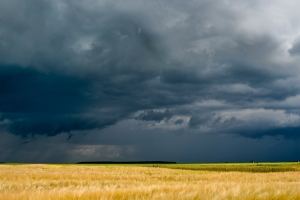National Farmers’ Federation President Jock Laurie says 2012 is shaping up to be one of the most positive years on record for Australian farmers.
"The beginning of 2012 brings with it improved seasonal conditions across most of Australia, favourable commodity prices, a weakening Australian dollar and a forecast that the value of farm exports is expected to rise some six per cent," Laurie said.
"There has never been a better time to be a farmer - and the story of Australian agriculture reflects this. The growth in the farm sector over the past 20 years has consistently outperformed other sectors, and was a key reason Australia avoided a recession during the global financial crisis.
"The prospects for agriculture are huge, with the need to feed, clothe and house a booming world population. World population growth will continue to expand to over nine billion by 2050, driving demand for both quality and quantity of food and fibre, as well as availability of arable land and water. We are entering the ‘Asian century’ and we are well placed to capitalise on this.
"Agriculture has an enormous uptake of new technology, we have thousands of jobs available, we contribute $32 billion in export income to the economy, we manage some 61 per cent of Australia’s land, and we produce the clean, healthy, fresh food that Australian families, and indeed families across the world, enjoy.
"This year, the focus on farming via the Australian Year of the Farmer will help us tell the great story of agriculture and raise awareness about the enormous contribution of our farmers.
"At the same time, the NFF will this year be working with the agricultural industry and the wider supply chain to develop the Blueprint for Australian Agriculture - one of the most ambitious and innovative programs ever undertaken to set a road map for the future of the farming sector.
"We look forward to working with farmers and all within agriculture this year to celebrate the Australian Year of the Farmer, and to develop the Blueprint for Australian Agriculture," Laurie said.
Despite the positives, a report released last month by the Australian Bureau of Agricultural and Resource Economics and Sciences (ABARES) confirms that farmers will face additional costs under the carbon tax.
Laurie said the report clearly shows that farmers will be slugged with additional costs under the tax, due to higher input costs such as electricity and the potential pass through of costs from the processing sector.
"Months ago, during the carbon tax debate, the NFF released independent research from the Australian Farm Institute (AFI) which showed that Australian farmers were going to wear the cost of the carbon tax," Laurie said.
"We now have a Government report that reflects the AFI’s findings, showing that farmers, particularly dairy farmers, are going to wear the costs.
"We are the first to acknowledge that agriculture’s direct emissions are not covered by the carbon tax and that concessions have been provided by the Government regarding agricultural fuel, carbon mitigation R&D and extension and rewards for biodiversity projects – however, this does not mean that agriculture will get off lightly under the carbon tax.
"In particular, we are very concerned about the impact of the carbon tax on other parts of the agricultural supply chain, particularly food processors, and what this will mean for our farmers.
"Food processors are facing millions of dollars in higher costs as a result of the carbon tax, particularly through increased electricity prices, and many have said that the only way they can recoup this cost is to pass it on to their suppliers – our farmers.
"The ABARES report shows that should processors pass on these costs, dairy farmers will lose some $4,200 in revenue, increasing to losses of $4,580 once heavy vehicle fuel is introduced under the tax from 2014.
"We have to question why the Government didn’t release this research from ABARES earlier, so that it could help inform the carbon tax debate.
"We are calling on the Government to make the exclusion of heavy vehicle fuel from the carbon tax permanent, and to give the processing sector the assistance it needs so as to not pass on the costs of the carbon tax to farmers."









-160x160-state_article-rel-cat.png)


-160x160-state_article-rel-cat.png)
-160x160-state_article-rel-cat.png)





